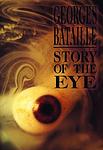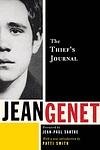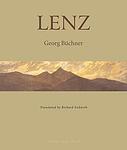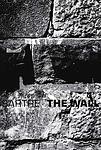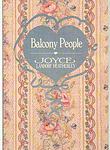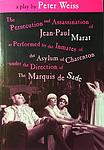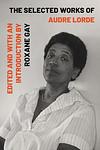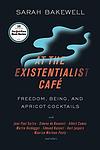The Greatest "France, Existentialist, Fiction" Books of All Time
Click to learn how this list is calculated.
This list represents a comprehensive and trusted collection of the greatest books. Developed through a specialized algorithm, it brings together 305 'best of' book lists to form a definitive guide to the world's most acclaimed books. For those interested in how these books are chosen, additional details can be found on the rankings page.
Genres
The "France" category of books encompasses literature that is set in or about France, its culture, history, and people. This category includes works of fiction, non-fiction, memoirs, travelogues, and historical accounts that explore the rich and diverse aspects of French society, from its art, cuisine, and fashion to its politics, economy, and social issues. The books in this category offer readers a glimpse into the unique and fascinating world of France, its people, and its way of life.
Existentialist literature is a genre that explores the meaning and purpose of human existence, often through the lens of individual experience and subjective perception. These books often delve into themes of freedom, choice, and responsibility, and may challenge traditional notions of morality and societal norms. Existentialist literature can be introspective and philosophical, and may offer readers a unique perspective on the human condition and the search for meaning in a complex and often chaotic world.
Countries
Date Range
Reading Statistics
Click the button below to see how many of these books you've read!
Download
If you're interested in downloading this list as a CSV file for use in a spreadsheet application, you can easily do so by clicking the button below. Please note that to ensure a manageable file size and faster download, the CSV will include details for only the first 500 books.
Download-
1. Journey to the End of The Night by Louis-Ferdinand Céline
The novel is a semi-autobiographical work that explores the harsh realities of life through the cynical and disillusioned eyes of the protagonist. The narrative follows his experiences from the trenches of World War I, through the African jungles, to the streets of America and the slums of Paris, showcasing the horrors of war, colonialism, and the dark side of human nature. The protagonist's journey is marked by his struggle with despair, loneliness, and the absurdity of existence, offering a bleak yet profound commentary on the human condition.
The 125th Greatest Book of All Time -
2. Nausea by Jean Paul Sartre
The novel follows a historian living in a small French town, struggling with a strange and unsettling feeling of disgust and revulsion he calls 'nausea'. He grapples with the existential dread of his own existence and the meaningless of life, continually questioning his own perceptions and the nature of reality. As he navigates through his everyday life, he is plagued by his philosophical thoughts and the overwhelming sensation of nausea, leading him to a profound existential crisis.
The 257th Greatest Book of All Time -
3. The Notebooks of Malte Laurids Brigge by Rainer Maria Rilke
"The Notebooks of Malte Laurids Brigge" is a semi-autobiographical novel narrated by a young man from Denmark living in Paris, who is trying to understand the world and his place in it. The protagonist is a poet and a dreamer, who spends his time observing and reflecting on the people and situations around him. The book is a collection of his thoughts, observations, and musings, which often revolve around themes of death, solitude, history, and the nature of existence. It's a deep and introspective exploration of the human condition and the nature of creativity.
The 512th Greatest Book of All Time -
4. Hopscotch by Julio Cortázar
This avant-garde novel invites readers into a non-linear narrative that can be read in two different orders, following the life of Horacio Oliveira, an Argentine intellectual living in Paris with his lover, La Maga. The story explores philosophical and metaphysical themes, delving into the nature of reality and the human condition, while also examining the struggles of intellectual and emotional life. The second part of the novel takes place in Buenos Aires, where Horacio returns after La Maga disappears, and where he grapples with his past, his identity, and his place in the world.
The 532nd Greatest Book of All Time -
5. Against Nature by J. K. Huysmans
The novel follows the life of an eccentric aristocrat who retreats from society to live in isolation, dedicating himself to the pursuit of excessive aestheticism. He surrounds himself with art, literature, and music, and indulges in sensual pleasures and extravagant interior decoration. The protagonist's obsession with artifice over nature and his quest for absolute individualism and self-gratification are explored, reflecting the decadent movement of the late 19th-century France.
The 724th Greatest Book of All Time -
6. Story of the Eye by Georges Bataille
This novel is a provocative exploration of the dark side of human nature, featuring two teenage characters who engage in increasingly bizarre and violent sexual games. Their actions, driven by their obsession with eroticism and death, lead them into a world of perversion and madness. The narrative is filled with explicit sexual content and shocking imagery, reflecting the author's fascination with the transgressive and the taboo.
The 1001st Greatest Book of All Time -
7. Death on Credit by Louis-Ferdinand Céline
"Death on Credit" is a semi-autobiographical novel that explores the life of a young Frenchman in Paris during the early 20th century. The protagonist, a medical student from a poor family, struggles with the harsh realities of life, including poverty, sickness, and death. The narrative is marked by its dark humor, cynicism, and scathing critique of society, reflecting the author's own experiences and views. The protagonist's journey is a constant struggle against the absurdity and despair of existence, depicted through a series of episodic adventures and misadventures.
The 1068th Greatest Book of All Time -
8. Our Lady of the Flowers by Jean Genet
The novel is a dark, poetic exploration of the criminal underworld in Paris, focusing on the life and fantasies of a homosexual prostitute and thief. The protagonist, while in prison, creates an elaborate fantasy world populated by outcasts, convicts, and murderers, including a transgender character who becomes his ideal of beauty and purity. The narrative is filled with graphic depictions of sex and violence, and explores themes of transgression, identity, and the transformative power of the imagination.
The 1275th Greatest Book of All Time -
9. On the Heights of Despair by Emil Cioran
"On the Heights of Despair" is a philosophical exploration of the human condition, particularly focusing on themes such as existentialism, despair, and nihilism. The author delves into the idea of life as suffering and the inevitability of death, offering a bleak yet thought-provoking perspective on existence. The work is a profound contemplation of life's absurdity, loneliness, and the struggle to find meaning, presenting an introspective journey into the depths of despair and the heights of existential thought.
The 1709th Greatest Book of All Time -
10. Blue of Noon by Georges Bataille
"Blue of Noon" is a provocative novel set in 1930s Europe during the rise of fascism. The story follows the life of an Englishman living in Paris, who is embroiled in a self-destructive cycle of sexual escapades and political extremism. His journey takes him through various European cities, where he engages in debauchery and encounters the political turmoil of the time. The book explores themes of existentialism, nihilism, and the human condition, offering a dark and complex portrayal of a man's struggle with his inner demons and the chaotic world around him.
The 1991st Greatest Book of All Time -
11. Moravagine by Blaise Cendrars
The novel follows the adventures of an eccentric, violent, and mentally unstable protagonist who is released from an asylum by his psychiatrist. The pair embark on a chaotic journey across Europe and America, encountering a variety of strange and often dangerous situations. The narrative explores themes of insanity, violence, and the human condition, offering a dark and surreal critique of modern society.
The 2126th Greatest Book of All Time -
12. Down There by J. K. Huysmans
"Down There" is a novel that follows the life of a Parisian novelist who is disillusioned with his mundane life and seeks solace in the occult. His journey leads him to a satanic priest who introduces him to the dark world of satanism. The protagonist becomes deeply involved in this world, experiencing hallucinations and disturbing visions. The book is a deeply psychological exploration of the human fascination with evil and the macabre, set against the backdrop of late 19th-century Parisian society.
The 2452nd Greatest Book of All Time -
13. The Afternoon of Monsieur Andesmas by Marguerite Duras
"The Afternoon of Monsieur Andesmas" is a poignant exploration of memory, waiting, and the passage of time set in a small Mediterranean village. The narrative focuses on Monsieur Andesmas as he waits on a hillside for a contractor to discuss building a terrace for his daughter. As he waits, various interactions with the local people and his internal reflections reveal the complexities of his past relationships and the deep undercurrents of emotion tied to his family and his life choices. The novel delves into themes of guilt, regret, and the haunting nature of past decisions, all encapsulated in the quiet, tension-filled atmosphere of a single afternoon.
The 2828th Greatest Book of All Time -
14. The Thief's Journal by Jean Genet
The book is a fictionalized account of the author's experiences in the criminal underworld of early 20th-century Europe. It is a narrative that delves into the life of a man who embraces his identity as a thief and a homosexual, exploring the intersections of crime, sexuality, and social defiance. The protagonist navigates through various relationships with fellow outcasts and criminals, while also confronting the moral codes of society. The work is known for its poetic and introspective prose, as well as its exploration of themes such as betrayal, freedom, and the search for beauty within the margins of society.
The 2878th Greatest Book of All Time -
15. Lenz by Georg Buchner
"Lenz" is a novella that explores the mind of Jakob Michael Reinhold Lenz, a historical figure and playwright, during his descent into madness. The narrative presents a detailed account of Lenz's mental state as he struggles with depression, anxiety, and hallucinations while living in the mountains. It provides a profound look into the human psyche and the effects of isolation and mental illness.
The 3796th Greatest Book of All Time -
16. The Wall by Jean Paul Sartre
The book in question is a profound exploration of the human condition, particularly the psychological turmoil and existential dread faced by individuals confronting their mortality. Set against the backdrop of the Spanish Civil War, it follows the story of a group of prisoners sentenced to death, focusing on their emotional responses and the philosophical introspection of the protagonist. As the characters grapple with the inevitability of their fate, the narrative delves into themes of freedom, the absurdity of existence, and the search for meaning in a seemingly indifferent universe, ultimately presenting a stark examination of the choices one makes when faced with the ultimate end.
The 5260th Greatest Book of All Time -
17. Jerome by Jean-Pierre Martinet
"Jerome" is a dark and unsettling novella that delves into the life of its eponymous protagonist, a reclusive, grotesque, and morbidly obese librarian who lives in a decrepit apartment. His existence is one of grim routine and perverse fantasies, as he harbors an unhealthy obsession with the young daughter of his landlord. The narrative explores the depths of Jerome's alienation and psychological torment, painting a bleak portrait of a man consumed by his own depravity and the suffocating confines of his solitary world. The book is a stark examination of loneliness, despair, and the human condition, rendered with a visceral intensity that leaves a lasting impression.
The 5494th Greatest Book of All Time -
18. The Balcony by Jean Genet
"The Balcony" is a play set within a brothel that doubles as a fantasy realm for its clients, who act out their grandiose illusions of power as figures like a bishop, a judge, and a general. As a revolution rages in the streets outside, the establishment's madam and her patrons grapple with the nature of authority and reality, blurring the lines between the authentic and the performative. The play delves into themes of identity, societal roles, and the corrupting influence of power, offering a dark, existential critique of the structures that uphold the facade of societal order and the human desire to escape into illusion.
The 5954th Greatest Book of All Time -
19. Marat Sade by Peter Weiss
The play is a dramatic exploration of power, class struggle, and human suffering set within the confines of an insane asylum in 1808 France. It depicts the Marquis de Sade as an inmate directing his fellow patients in a play about the assassination of Jean-Paul Marat, a radical journalist and politician during the French Revolution. The work delves into the philosophical and political debates between Sade and Marat, representing differing views on revolution, freedom, and the nature of humanity. As the inmates perform, the line between performance and reality blurs, creating a provocative and chaotic theater experience that challenges the audience's perception of madness and reason.
The 6133rd Greatest Book of All Time -
20. Selected Works by Alfred Jarry
"Selected Works" by Alfred Jarry is a compilation of the most significant writings from a French author known for his pioneering work in the Absurdist and Surrealist movements. The collection showcases a range of Jarry's literary output, including plays, essays, and novels, with his most famous character, Père Ubu, often taking center stage. Jarry's work is characterized by its satirical edge, inventive language, and the subversion of traditional literary forms. His influence extends beyond literature into the realms of theatre and the visual arts, where his ideas have continued to resonate with avant-garde movements throughout the 20th century and beyond.
The 7180th Greatest Book of All Time -
21. Aurelia by Gérard de Nerval
"Aurelia" is a semi-autobiographical narrative blending reality with dreamlike visions, where the protagonist embarks on a profound and surreal journey through his psyche following a descent into madness. The work is a poignant exploration of the author's own experiences with mental illness, unrequited love, and existential anguish. It delves into themes of the supernatural, the occult, and the interplay between dreams and waking life, as the narrator seeks to reconcile his internal turmoil and find a deeper understanding of his soul and the universe. The narrative is rich with symbolic imagery and introspective passages that reflect the author's fascination with the mystical and his quest for spiritual transcendence.
The 7180th Greatest Book of All Time -
22. At The Existentialist Café: Freedom, Being, And Apricot Cocktails by Sarah Bakewell
"At The Existentialist Café" is a non-fiction book that explores the lives and ideas of a group of philosophers known as the existentialists. The book takes readers on a journey through the cafes of Paris in the 1930s and 40s, where philosophers such as Jean-Paul Sartre, Simone de Beauvoir, and Maurice Merleau-Ponty would gather to discuss their ideas about freedom, being, and the meaning of life. Bakewell weaves together their personal stories, philosophical theories, and the historical context in which they lived, to create a compelling and accessible introduction to existentialism.
The 9045th Greatest Book of All Time
Reading Statistics
Click the button below to see how many of these books you've read!
Download
If you're interested in downloading this list as a CSV file for use in a spreadsheet application, you can easily do so by clicking the button below. Please note that to ensure a manageable file size and faster download, the CSV will include details for only the first 500 books.
Download








